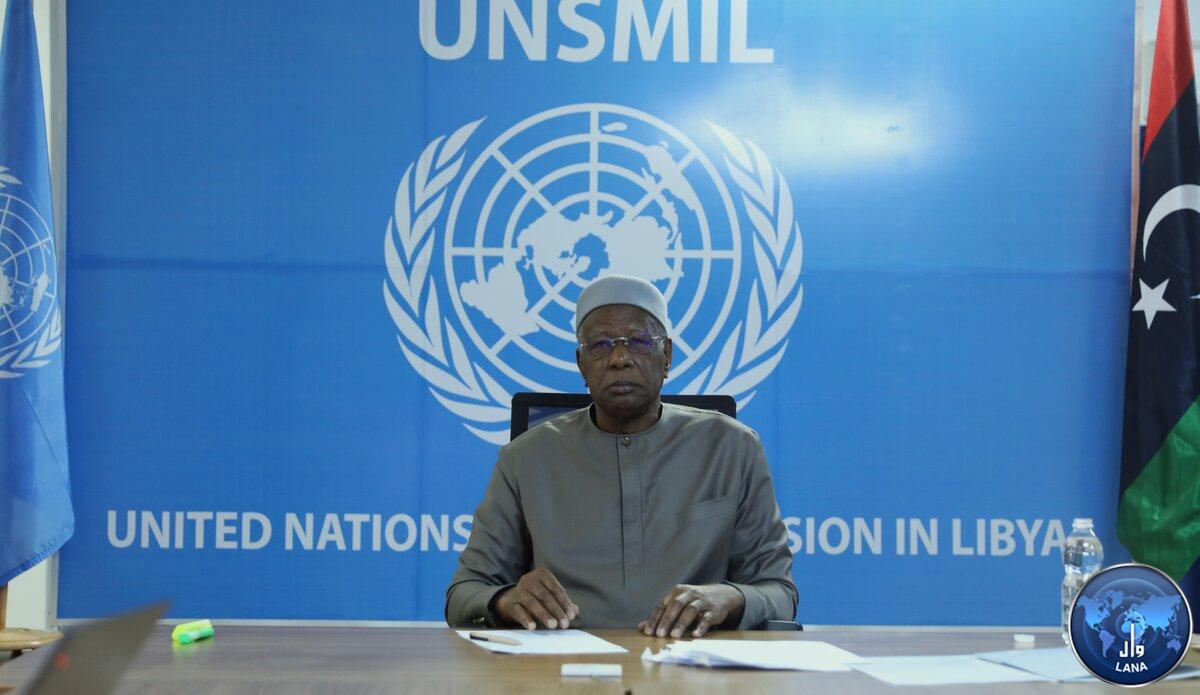The UN envoy to Libya, Abdullah Batili, begins his briefing on Libya before the Security Council.
Pulbished on:
New York, February 15, 2024 (LANA) - The United Nations envoy to Libya, Abdullah Batili, confirmed that the main Libyan parties are not ready to settle politically controversial matters despite the completion of the legal and constitutional framework for electoral laws.
Batili said in his briefing to the UN Security Council on Libya today, Thursday, that he stressed during his recent discussions with Speaker of the House of Representatives, Aguila Saleh, that the primary task is to form a unified government, noting that Saleh confirmed that he would not participate in the five-party meeting unless the government-designate participated. From the House of Representatives or the National Unity Government was excluded.
The UN envoy continued that the head of the High Council of State, Mohamed Tekala, "still rejects the electoral laws issued by the 6+6 Committee and is still adhering to the laws of Bouznika."
Batili pointed out that the head of the National Unity Government, Abdul Hamid Dabaiba, confirmed that he would not give up his position until after the elections were held, and he wanted his government to supervise the upcoming electoral process.
The United Nations envoy pointed out that Field Marshal Khalifa Haftar insisted on the need for the two governments to participate in the dialogue or exclude them, and he said that the President of the Presidential Council, Mohamed Al-Manfi, does not want to become a party and provide support for my initiative. Batili stressed that the political settlement in Libya must include a specific timetable, pointing out that he does not support any initiative that would fuel the conflict and endanger the lives of Libyans, and that the United Nations is ready to consider any proposals that lead to a settlement of the Libyan crisis. They called on the Security Council to pressure the Libyan parties to participate in the five-party dialogue.
The UN envoy expressed his concern about the House of Representatives discussing a new draft reconciliation law in a way that goes beyond the Presidential Council and its draft, saying, “Progress cannot be possible without a political settlement between the leaders, and I urge them to put aside personal and selfish interests.”
He said that the security situation in southern Libya is worrying as a result of the deteriorating conditions in Sudan and the Sahel.
The UN envoy explained that the withdrawal of foreign forces and mercenaries from Libya is still stalled due to the political stalemate.
The UN envoy called on all Libyan entities to work to achieve fair and transparent management of Libya's revenues, stressing that parallel initiatives cannot be useful unless they support the efforts of the UN mission to resolve the crisis.
Batili urged all major parties to stay away from narrow personal interests and to attend the negotiating rounds in good faith and discuss all controversial matters in a way that does not cast doubt on their commitment to the elections or the country’s unity and future.




